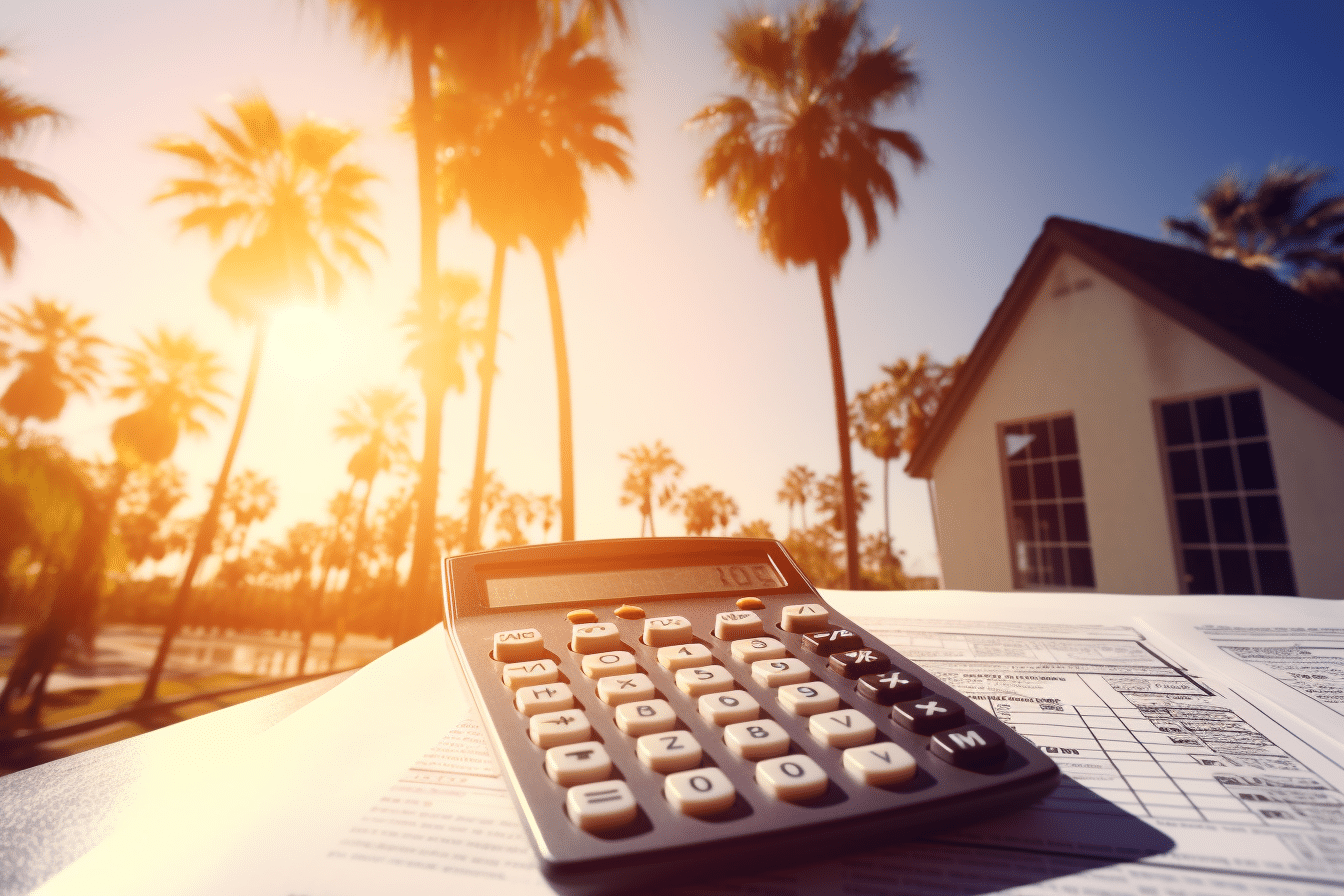Property taxes, a critical aspect of homeownership that must be considered, play an essential role in home-buying. In Florida, understanding the intricacies of these levies is vital for potential homeowners to make well-informed decisions and avoid unwelcome surprises down the line.
As one becomes part of Florida’s vibrant communities, knowledge about property tax structures contributes to a sense of belonging while ensuring smooth navigation through complex financial terrain.
The following article endeavors to elucidate various dimensions of property taxes within the Sunshine State from the perspective of a real estate tax attorney/advisor. Readers will gain valuable insights into critical factors determining tax rates, available exemptions, and payment processes – all tailored towards facilitating easy assimilation into life as a homeowner in this tropical paradise.
By acquainting oneself with these crucial details before purchasing a residential property in Florida, prospective buyers can confidently embark on their journey towards fulfilling their dreams of owning a piece of this sought-after haven.
Determining Factors For Tax Rates
It is an irrefutable fact that the labyrinth of tax calculations and rate fluctuations associated with property taxes can, at times, seem like a daunting task to decipher. However, when purchasing a home in Florida, potential homeowners must grasp the various factors determining these tax rates.
This comprehensive understanding ensures compliance with local regulations and provides invaluable insights into the actual cost of owning real estate. In navigating this intricate web of taxation, several key elements must be considered as they pertain to residential properties in Florida.
First and foremost, the property’s assessed value plays a crucial role in determining applicable tax rates. In most cases, local taxing authorities will utilize recent sales data or appraisal values to estimate current market conditions accurately. Additionally, millage rates – essentially representing the amount levied per thousand dollars of assessed valuation – significantly impact overall liabilities for individual taxpayers. These rates are established annually through budgetary processes involving school districts, municipalities, counties, and other special taxing districts, thus leading to potential variations from year to year.
Delving deeper into the intricacies surrounding property taxes unveils further complexities, such as available exemptions and discounts, which may substantially reduce financial burdens imposed on homeowners. Establishing eligibility criteria for homestead exemptions and implementing strategies to maximize savings opportunities requires careful consideration of pertinent statutes governing ad valorem taxation within Florida’s jurisdictional boundaries.
As we explore these exemption possibilities more thoroughly in subsequent discussions, potential homebuyers will be equipped with the necessary knowledge to make informed decisions about their future investment endeavors.
Available Exemptions And Discounts
When examining property taxes in Florida, it is essential to explore the various exemptions and discounts available to homebuyers. These tax-saving opportunities can significantly reduce the financial burden of owning a property in the Sunshine State. Understanding exemption qualifications and discount eligibility will allow potential homeowners to make informed decisions about purchasing real estate.
Several exemptions exist within the state of Florida, including:
- Homestead Exemption: This exemption applies to primary residences only, providing up to $50,000 off the assessed value for qualified applicants.
- Senior Citizen Exemption: Available for homeowners aged 65 or older with specific income requirements.
- Veterans Disability Exemption: This applies to veterans with service-connected disabilities; exemption amounts vary based on disability percentage.
- Widows/Widowers Exemption: Provides a slight reduction in taxable property value for qualifying surviving spouses.
- Blind Person Exemption: Offers an additional exemption amount for legally blind individuals.
A thorough analysis of these tax benefits and any local government-provided incentives will reveal whether one qualifies for specific annual property tax bill reductions. It is crucial to remember that every jurisdiction has distinct procedures for applying and maintaining these exemptions. So, consulting with a real estate tax attorney or advisor can ensure that all pertinent details about individual circumstances are accurate.
The assessment process plays a significant role in establishing the total amount owed by each homeowner annually. By grasping how this procedure operates and understanding applicable appeal processes, Floridian homebuyers can optimize their chances of securing favorable taxation rates.
Investigating these factors equips prospective purchasers with valuable insights into navigating the complexities of property ownership while fostering confidence in financial planning endeavors. The following section delves into greater detail on this essential topic – the assessment and appeal process – ensuring readers are well-prepared when embarking upon their real estate journey.
The Assessment And Appeal Process
Having explored the various exemptions and discounts available to Florida homeowners, it is crucial to comprehend the assessment process. Equally important is understanding how an appeal can be made if there are concerns about property tax assessments’ accuracy. The subsequent section will delve into these essential topics.
Assessment accuracy is vital in determining property taxes for homeowners in Florida. To ensure fairness and transparency, properties must be assessed at their just value by law. Just value refers to the property’s market value as determined by location, size, age, and condition. Property appraisers conduct evaluations annually using professionally accepted appraisal practices that consider recent comparable sales data and other relevant information. A well-executed valuation protects taxpayers from being overburdened with excessive taxation while ensuring local governments receive sufficient revenue for public services.
Appeal preparation begins once a homeowner receives their Notice of Proposed Property Taxes (TRIM notice) containing the preliminary assessed value of the property. The TRIM notice provides critical information on filing deadlines and the necessary documentation required for appeals.
Homeowners who believe their property needs to be accurately assessed may initiate an informal review or file a petition with the Value Adjustment Board (VAB). In either case, assembling evidence supporting one’s claim – including independent appraisals, comparable sales data, and photographs documenting conditions affecting value – strengthens one’s position during negotiations or VAB hearings.
By thoroughly understanding both assessment procedures and navigating the appeal process effectively, homeowners stand a better chance of achieving fair outcomes concerning their property taxes. As this overview demonstrates, knowledge of assessment methodologies and proactive engagement in potential appeals significantly influence one’s financial obligations regarding property taxes in Florida.
Looking ahead to payment options and deadlines allows homeowners to plan accordingly and avoid penalties associated with late payments or non-compliance issues while fostering community growth through shared fiscal responsibility.
Payment Options And Deadlines
How can one ensure timely payment of property taxes and avoid late penalties? A thorough understanding of the various payment options and deadlines available to homeowners in Florida is essential.
The state government provides several convenient methods for paying property taxes, including online payments, mail-in checks or money orders, and in-person transactions at local tax collector offices. By familiarizing themselves with these processes, homeowners can optimize their financial planning strategies and fulfill their civic responsibilities without undue stress.
Florida offers an optional installment plan to accommodate further taxpayers’ needs to ease the burden of annual lump-sum payments. Under this plan, property owners can divide their yearly tax bill into four smaller installments due on June 30th, September 30th, December 31st, and March 31st. This system allows individuals to manage their cash flow better while still adhering to legal obligations. However, it should be noted that participation in the installment plan requires enrollment before May 1st each year; those who miss this deadline must pay their taxes through traditional means.
A significant aspect to consider when managing property taxes is being aware of deadlines for submitting payments without incurring late penalties. In Florida, property taxes are typically due by November 1 and become delinquent if not paid by April 1 of the following year. To encourage prompt remittance, taxpayers receive discount rates on early payments made between November and February: a 4% reduction applies for payment during November; reductions decrease by 1% per month until February when no discounts remain applicable.
With proper planning and awareness of these critical dates related to payment options and deadlines, homeowners build a sense of community within themselves by actively contributing towards maintaining public services that benefit all residents. As we delve deeper into navigating property taxation complexities in Florida’s real estate landscape, let us now explore tax implications associated with different types of properties.
Tax Implications For Different Types Of Properties
In Florida, property taxes are levied based on properties’ classification and assessed value. Property classifications play a significant role in determining tax implications as they often have varying millage rates applicable to them. Before purchasing real estate, prospective homeowners must understand the different property classifications and their respective tax consequences.
Some standard property classifications in Florida and their corresponding tax implications include:
- Residential: Typically taxed at lower millage rates compared to commercial or industrial properties
- Commercial: Generally bear higher taxes due to increased demand for public services such as infrastructure maintenance and police protection.
- Industrial: Often subject to even higher tax rates than commercial properties because of potential environmental impacts and additional requirements for safety measures
- Agricultural: May qualify for reduced taxation through agricultural classification if specific criteria are met, including active farming operations, acreage thresholds, and bona fide intent to continue using the land for agricultural purposes.
- Tangible Personal Property: Taxed separately from real property; includes items like machinery, equipment, furniture, fixtures, signs, and leasehold improvements not specifically exempt by law
It is essential that individuals thoroughly analyze the various factors influencing tax liabilities associated with each property classification before purchase. These considerations impact one’s overall financial standing and ability to afford ongoing expenses related to home ownership.
By being well-informed about these aspects, buyers can make more informed decisions when selecting a suitable residential or investment property – ensuring they find an ideal fit within their budgetary constraints while benefiting from favorable tax treatment offered under different categories of real estate holdings.
Frequently Asked Questions
How Does Florida’s Property Tax System Compare To Other States Regarding Affordability And Complexity?
In evaluating tax comparisons and affordability factors across various states, Florida’s property tax system is relatively favorable for homeowners due to its modest rates and homestead exemptions.
Although the state ranks in the middle tier nationally regarding overall property taxes, it does not impose a state income tax, resulting in lower combined tax burdens than other high-tax jurisdictions.
Furthermore, the complexity of the Sunshine State’s taxation system is mitigated by provisions like the Save Our Homes cap on annual assessment increases and portability of accrued benefits, fostering an environment that promotes stability and predictability for residents.
Thus, prospective homebuyers seeking a sense of fiscal belonging can find solace in Florida’s balanced approach to property taxation.
Are There Additional Local Taxes Or Fees Homeowners In Florida Should Be Aware Of, Aside From The Standard Property Taxes?
Local tax nuances and fee considerations in Florida may extend beyond standard property taxes, warranting attention from prospective homeowners.
Municipalities and special taxing districts within the state can impose additional levies, such as non-ad valorem assessments for services like fire protection or waste management.
Furthermore, some jurisdictions charge impact fees to help fund infrastructure improvements necessitated by new residential developments.
These charges vary widely depending on the location and nature of the development; thus, evaluating local tax environments is essential when purchasing a home in Florida.
Engaging with community members or seeking professional advice from real estate tax attorneys/advisors can foster a sense of belonging while navigating this complex landscape.
Can A Non-Resident Or Foreign Buyer Qualify For Any Property Tax Exemptions Or Discounts When Purchasing A Home In Florida?
Navigating the labyrinthine world of property tax exemptions and discounts can be daunting, especially for non-residents and foreign buyers seeking a home in Florida. Though these groups are generally not eligible for the primary homestead exemption, other opportunities may exist to reduce their property tax burden.
Non-resident exemptions may apply depending on the buyer’s specific circumstances or the nature of the purchased property, such as agricultural classification or conservation easements. Furthermore, foreign buyer discounts could arise from international treaties or reciprocal agreements with certain countries that provide favorable tax treatment for their citizens investing in U.S. real estate.
To fully grasp potential savings and ensure compliance with complex regulations, non-residents and foreign buyers must consult a knowledgeable real estate tax attorney or advisor before embarking on their journey into Florida’s housing market.
How Does The Property Tax Rate Affect The Overall Cost Of Homeownership In Florida, And What Impact Does It Have On The Local Real Estate Market?
In analyzing the impact of property tax rates on homeownership costs and local real estate market trends in Florida, it is essential to consider potential tax deductions available to residents.
A significant factor influencing overall expenses related to home ownership is that property taxes can sway buyers’ decisions when entering the housing market or evaluating relocation options within the state.
Market trends often reflect shifts in demographics and economic conditions influenced by fluctuations in these taxes, which may result in varying levels of demand for properties across different regions or neighborhoods.
As a real estate tax attorney/advisor, I would advise clients seeking an engaging community that nurtures their desire for belonging; understanding the implications of property taxes on personal finances and broader market dynamics remains crucial in making informed investment choices.
Are Any Resources Or Assistance Programs Available For First-Time Homebuyers In Florida To Help Them Navigate The Property Tax Process?
Navigating the property tax process in Florida can be daunting for first-time homebuyers; however, numerous resources and assistance programs are available to ease this burden.
These programs provide valuable information on understanding the intricacies of property taxes and offer financial aid options tailored to meet individual needs.
Resources such as the Florida Housing Finance Corporation (FHFC) and local housing authorities offer various services, including down payment assistance and educational workshops, enabling first-time buyers to make informed decisions during the purchase process.
Furthermore, several community organizations collaborate with these agencies to deliver personalized guidance that fosters long-term homeowner success while fostering a sense of belonging within their new communities.
Conclusion
In conclusion, Florida’s property tax system is more affordable and less complex than other states.
One interesting statistic highlighting the affordability of property taxes in Florida is that its average effective property tax rate (0.98%) ranks the 23rd lowest among all U.S. states.
This relatively low burden on homeowners positively impacts the local real estate market by fostering an environment conducive to home buying and investment.
As a prospective homeowner or investor, it is crucial to understand the various aspects of property taxes when purchasing a home in Florida.
By familiarizing oneself with local taxes, potential exemptions for non-residents or foreign buyers, and available resources for first-time homebuyers, one can make informed decisions regarding homeownership in the Sunshine State.
Engaging a knowledgeable real estate tax attorney/advisor may simplify this process and ensure a seamless transition into Florida homeownership.




